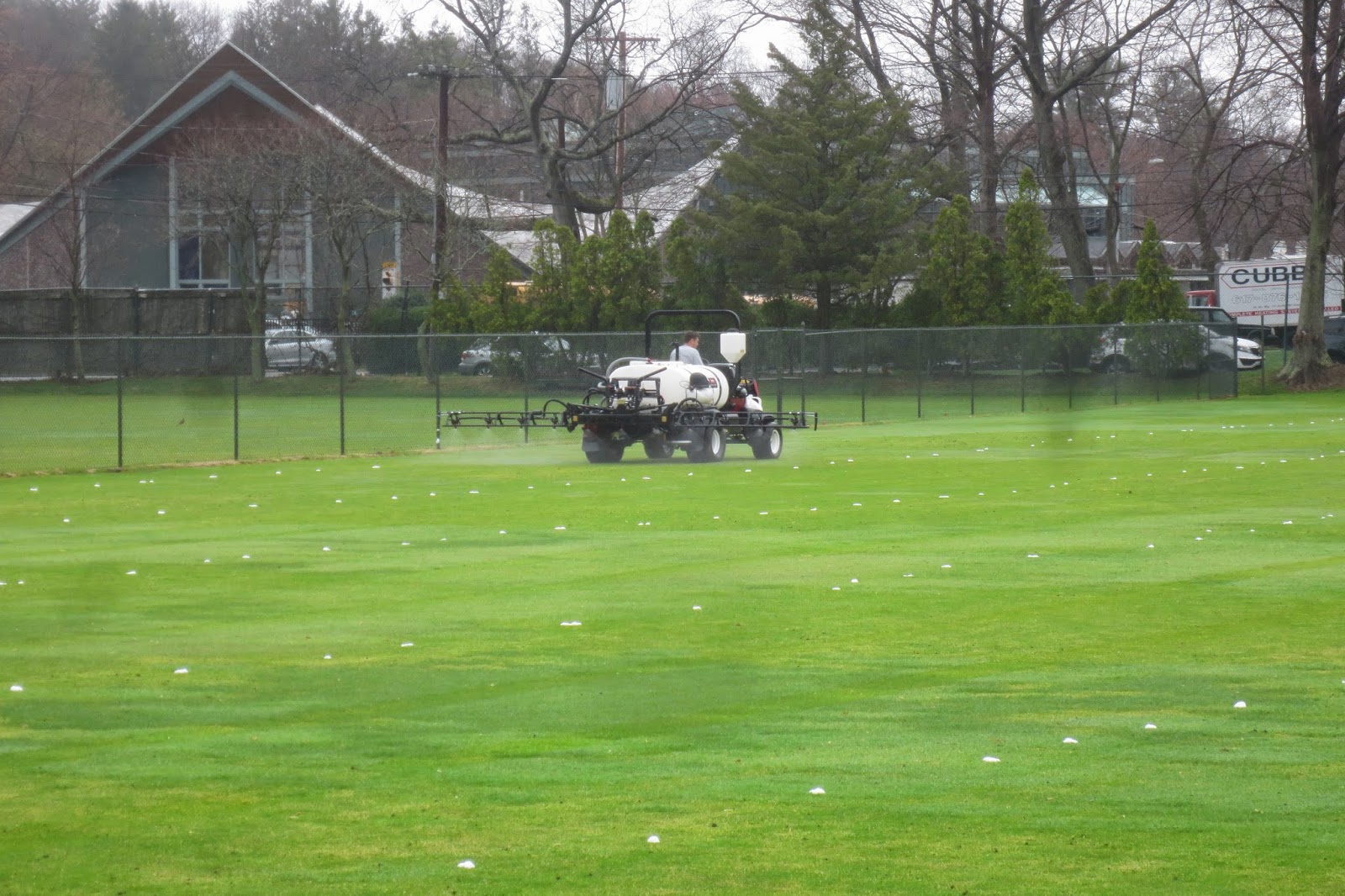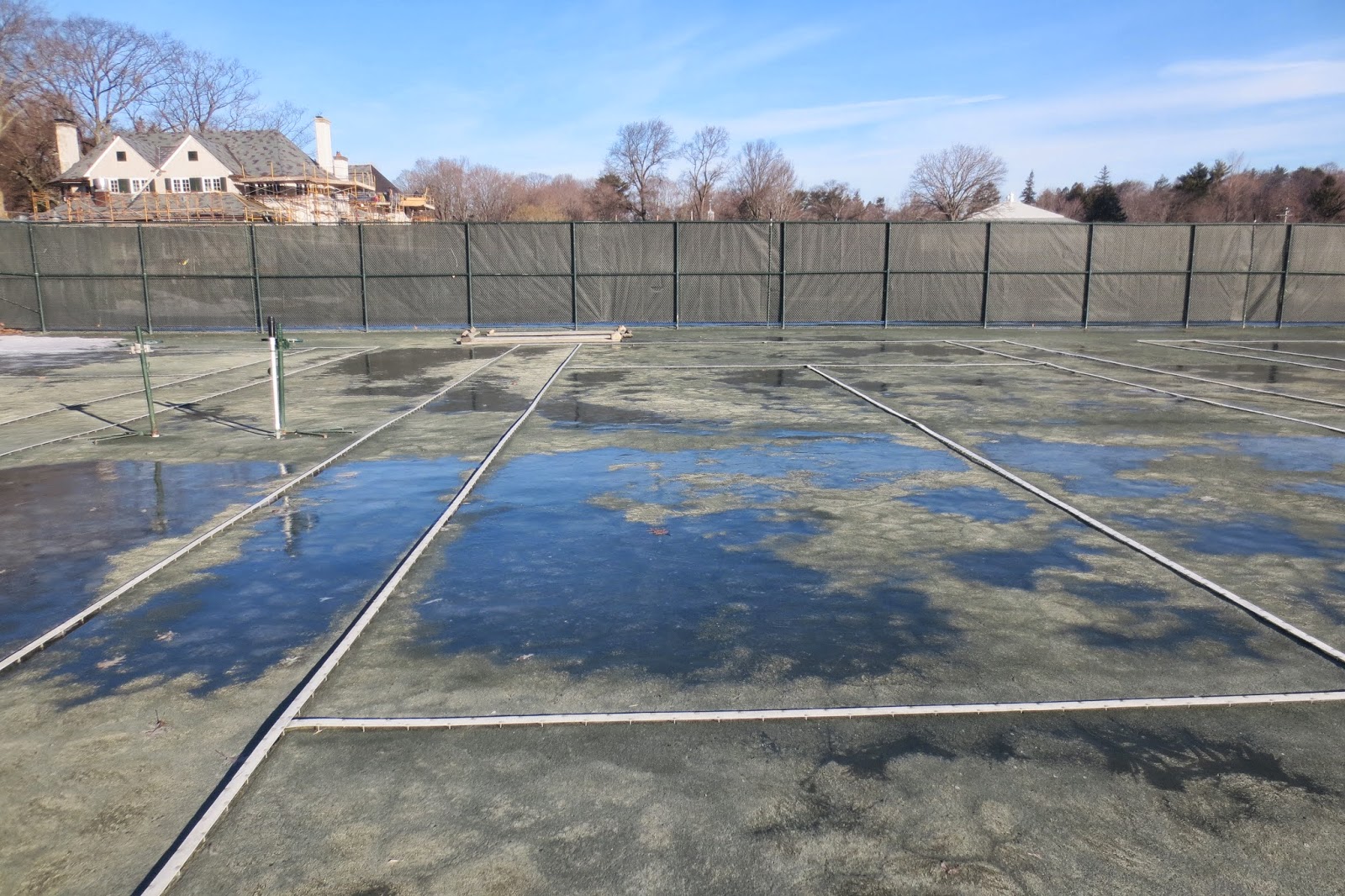LCC Grounds

Longwood Cricket Club Grounds
LCC Grounds blog began in 2008. Entries have educated membership and the public on the crew, agronomic techniques, horticulture and clay court maintenance.
We really enjoy what we do and hope the readers of this blog get something out of it. Questions , comments and any feedback on the content is highly encouraged. If you are from another club, or grounds department, please do not hesitate to contact us!
For those loyal followers of this blog, we want to let you know that our focus for social media updates concerning the grounds department will be on Twitter, where you can follow us @LCCgrounds. You can also follow us on instagram here: LCCGrounds
Wednesday, July 2, 2014
Tuesday, June 10, 2014
Flower
Goats Beard flower - 3 days ago and today, big change in the flower in a short time.
Can be found in the pool cafe perennial garden.
Wednesday, June 4, 2014
Monday, May 5, 2014
Friday, May 2, 2014
Friday, April 25, 2014
Wednesday, April 16, 2014
Monday, April 7, 2014
Tuesday, April 1, 2014
Tuesday, March 25, 2014
Pics 3/24/2014
Freeze/thaws are slowing down our progress in doing our main clay court renovations. Each night the court freezes and then strong March suns melts the top by mid morning. Since the clay is still frozen beneath, there is no where for the water to go and the court becomes mush. This has happened almost every day for the last two weeks. Warm weather is coming after tomorrows snow, so this pattern may be changing and we can get going getting ready for opening day.
We have had a lot of heaving from freeze/thaws on the posts, brick walkways and anything else in the ground. The last picture here shows the net post on clay court number 4. The post was pushed up. Growing near the post was a grass plant (Poa annua) and the heaving pulled up the plant.
Friday, March 14, 2014
Tuesday, March 11, 2014
New Crciket
Charlie from Dutelle Roofers showing the old cricket from the clubhouse weather vane and a new one he just finished fabricating (copper). The new one will be functional - the old will be displayed in the clubhouse.
We have brought in some samples of the grass from various courts to see if there has been any winter injury. So far all of them are OK except for one from court 17 that is struggling. Rain/snow is predicted and then temperatures are supposed to really drop. The grass is in a vulnerable state right now, huge swings in temperature could be a problem - stay tuned! For more on winter injury click here:
Monday, January 27, 2014
Davis Cup
Fellow sports turf manager, Luke Yoder, Tweeted these pictures of the temporary Davis Cup stadium in left field of Petco Park in San Diego. I am sure he has hosted many unusual events on his field over the years, but this is something new.
Thursday, January 23, 2014
Winter Weather
The 2012-2013 winter had perfect conditions for the health of the grass courts. A moderating blanket of snow with no ice layer and consistent temperatures was optimum for the plants. The winter of 2013-2014 has been a different story. Wet conditions and above normal temperatures followed by extreme cold is a worst case scenario for winter injury to our Poa annua courts. And that is exactly what we have had. More than once, conditions of heavy rain, temperatures in the high 40's to low 50's and then single digit temperatures within hours have occurred!
The Poa annua plants can handle cold and ice (though not as well as other northern climate species) - they do every year. So why might there be a problem this year? The timing of the wet conditions along with the temperature swings can cause an injury called crown hydration. What happens is the plant wakes up a bit in the warm temperatures and begins taking in water. The water dilutes the "antifreeze" (carbohydrates) in the plant, temperatures fall and the water in the plant freezes creating crystals that puncture cells. During winter dormancy the plant is alive and respirating slowly, using carbohydrates. As the winter progresses, the plant has less and less of these carbohydrates that prevent freezing and the plant becomes more susceptible to freezing. So one positive of the weather we have had is that all of this has occurred fairly early in the winter season. If this weather pattern continues into late February and March, we could have some problems with winter injury.
As a turf manager, what can I do to prevent this? Most important was autumn preparation. Various cultural practices were used to promote carbohydrate reserves and healthy dormancy. After that, preventing the plants from being in wet conditions is most important and we addressed that by continuing to improve drainage on the courts. But we can only do so much in the low site of Longwood. Protecting the courts with an impermeable cover might help the situation by keeping out water, but covers can also hurt the situation by restricting oxygen and causing temperatures to rise too high underneath the protective layer. Many golf courses do this on some of their greens with great success, but these sometimes elaborate systems are not practical for our site.
As soon as we get a substantial thaw, we will bring some samples of the turfgrass into the clubhouse and see how the grass is doing. For now, no worries, but let's hope for moderate conditions for the remainder of the winter.
The Poa annua plants can handle cold and ice (though not as well as other northern climate species) - they do every year. So why might there be a problem this year? The timing of the wet conditions along with the temperature swings can cause an injury called crown hydration. What happens is the plant wakes up a bit in the warm temperatures and begins taking in water. The water dilutes the "antifreeze" (carbohydrates) in the plant, temperatures fall and the water in the plant freezes creating crystals that puncture cells. During winter dormancy the plant is alive and respirating slowly, using carbohydrates. As the winter progresses, the plant has less and less of these carbohydrates that prevent freezing and the plant becomes more susceptible to freezing. So one positive of the weather we have had is that all of this has occurred fairly early in the winter season. If this weather pattern continues into late February and March, we could have some problems with winter injury.
As a turf manager, what can I do to prevent this? Most important was autumn preparation. Various cultural practices were used to promote carbohydrate reserves and healthy dormancy. After that, preventing the plants from being in wet conditions is most important and we addressed that by continuing to improve drainage on the courts. But we can only do so much in the low site of Longwood. Protecting the courts with an impermeable cover might help the situation by keeping out water, but covers can also hurt the situation by restricting oxygen and causing temperatures to rise too high underneath the protective layer. Many golf courses do this on some of their greens with great success, but these sometimes elaborate systems are not practical for our site.
As soon as we get a substantial thaw, we will bring some samples of the turfgrass into the clubhouse and see how the grass is doing. For now, no worries, but let's hope for moderate conditions for the remainder of the winter.
 |
| January 23, 2014. 3 degrees F. |
Monday, January 13, 2014
Subscribe to:
Comments (Atom)




































